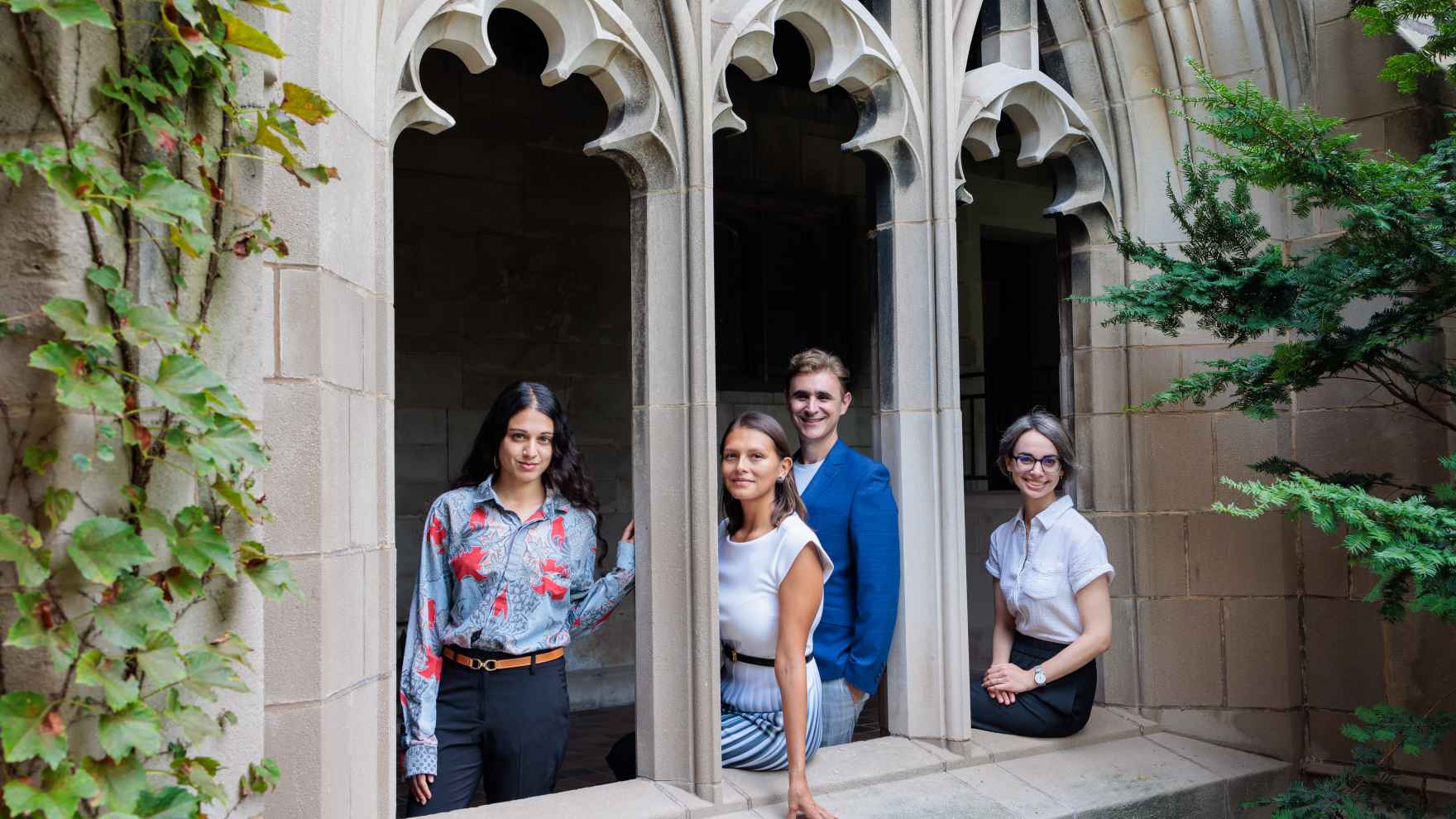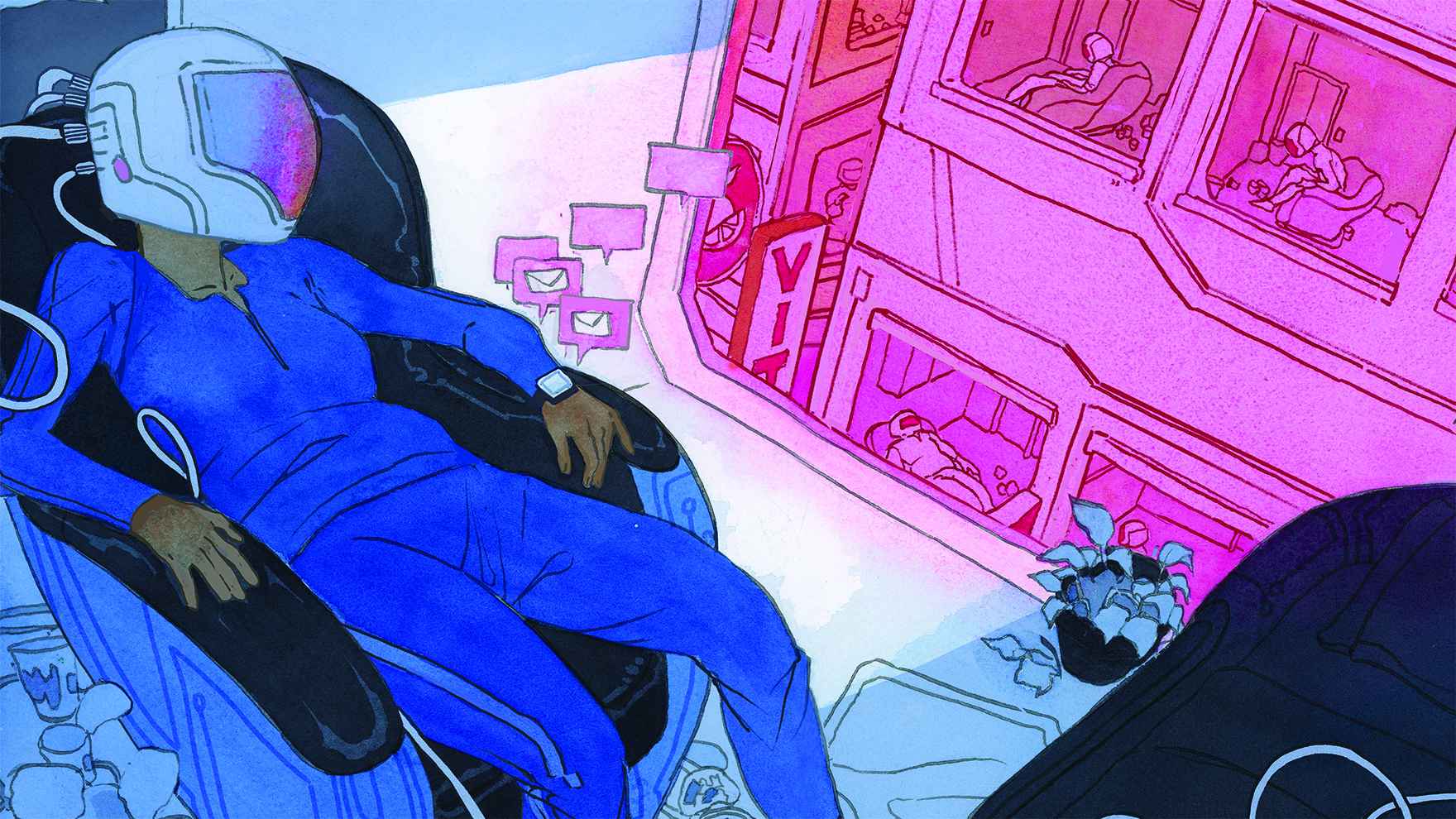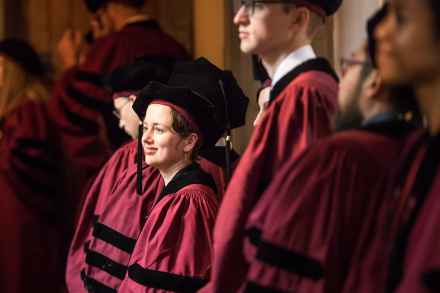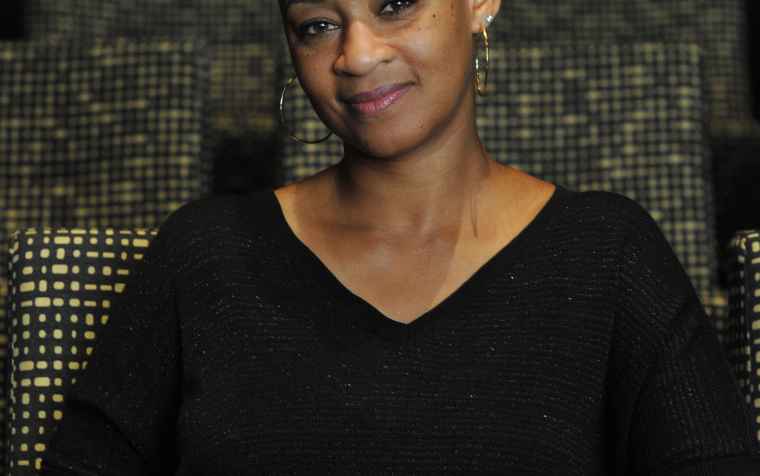Allyson Nadia Field Receives the Frederick Burkhardt Fellowship, Allowing Her to Focus on Uncovering Early Films Defying Racial Stereotypes
Humanities scholar Allyson Nadia Field seeks to reimagine early cinema history by analyzing rare films, ephemera, and artifacts. In 2018, she assisted in identifying the actors, producer, and historical significance of “Something Good—Negro Kiss,” a 30-second long silent film from 1898 that is believed to be the earliest representation of Black affection on-screen.
The rediscovery of this short film has led to a radical reconsideration about race in early cinema. Inspired by “Something Good—Negro Kiss” to continue her research about the interrelation of minstrelsy, vaudeville, and early cinema, Field recently received the 2020 Frederick Burkhardt Residential Fellowship from the American Council of Learned Societies.
Division of the Humanities Recognizes the Scholarship and Teaching of Students and Faculty at the 533rd Virtual Convocation
During this unprecedented time of the coronavirus, the Division of the Humanities at UChicago conducted a virtual Convocation—not out of choice but of necessity. The importance of commemorating its students’ and faculty’s achievements is captured on film and is available starting at 4:30 p.m. on June 12.
In addition to celebrating the achievements of more than 200 graduating students with master’s and doctoral degrees on June 12, Dean Anne Walters Robertson and Dean of Students Shea Wolfe honored several Division of Humanities students and faculty members during the Graduation Ceremony—Zoe Hughes, Lester (Zhuqing) Hu, Olga Sánchez-Kiselewska, Elizabeth Asmis, and Jason Riggle.
Four Graduate Students Honored for Exceptional Teaching of Undergraduates
Adam Antoszewski, Anna Band, Bastien Craipain and Shreya Ramachandran have been named the 2020 winners of the Wayne C. Booth Prize for Excellence in Teaching, awarded annually to graduate students for outstanding instruction of undergraduates. A doctoral candidate in the Department of Romance Languages and Literatures, Craipain has received the Stuart Tave Teaching Fellowship and will continue to teach at UChicago as a Humanities Teaching Fellow.
Students and faculty in the College nominated the recipients for the prize, which was established in 1991 in honor of Booth, PhD’50, the late UChicago faculty member who was one of the 20th century’s most influential literary critics.
The College Announces Winners of the Undergraduate Teaching Award
Beatrice Fineschi, Daragh Grant, Valerie Levan, Oscar Pineda-Catalan and Sunit Singh have been awarded the newly established Glenn and Claire Swogger Award for Exemplary Classroom Teaching. In the Division of the Humanities, Levan stands out for her understanding and support of helping students make the transition from high school to college.
Based upon nominations from students in the College, the award recognizes outstanding teachers with College appointments, who introduce undergraduates to habits of scholarly thinking, inquiry and engagement in the Core Curriculum, the College’s general education program.









